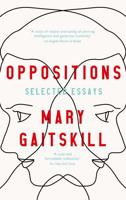Publisher's Synopsis
Excerpt from Chaucer
Decade since-his death. But since Tyrwhitt began his labours, nowjust a century ago, one great section of Chaucer's work, the Ca?/erbufy Tales, has been accessible in a fairly correct form, and thanks to the labours of the Chaucer sociecty - alike to its unweary ing director and the students, English, American, and German; who have come to his help - thc materials for a sound text of the whole of the poet's rl-zs, and much useful information about his life and studies, are at last available. To-day Chaucer has} more readers and more lovers than at any previ ouse time, and every year increases their number. But oh] errors about him are still potent. Poems, for the most part quite unworthy of him, for which in the'sixteenth century party feeling or editorial caprice sought the cloak of his name, are still attributed to him, and the story of his life is still obscured by. Mischievous fictions. The controversies thus created are not yet dead, and one unhappy result of them is that this little book cannot be written qiiite so simply as might be wished. It is not always enough merely to set down what is known about Chaucer, we have also to show how and why it is known, lest the next tithe a contradictory statement is encountered it may seem to possess equal weight. Only a very dull person will allow these details to usurp ah unreal importance, but for the present we cannot wholly do without them.
About the Publisher
Forgotten Books publishes hundreds of thousands of rare and classic books. Find more at www.forgottenbooks.com
This book is a reproduction of an important historical work. Forgotten Books uses state-of-the-art technology to digitally reconstruct the work, preserving the original format whilst repairing imperfections present in the aged copy. In rare cases, an imperfection in the original, such as a blemish or missing page, may be replicated in our edition. We do, however, repair the vast majority of imperfections successfully; any imperfections that remain are intentionally left to preserve the state of such historical works.









